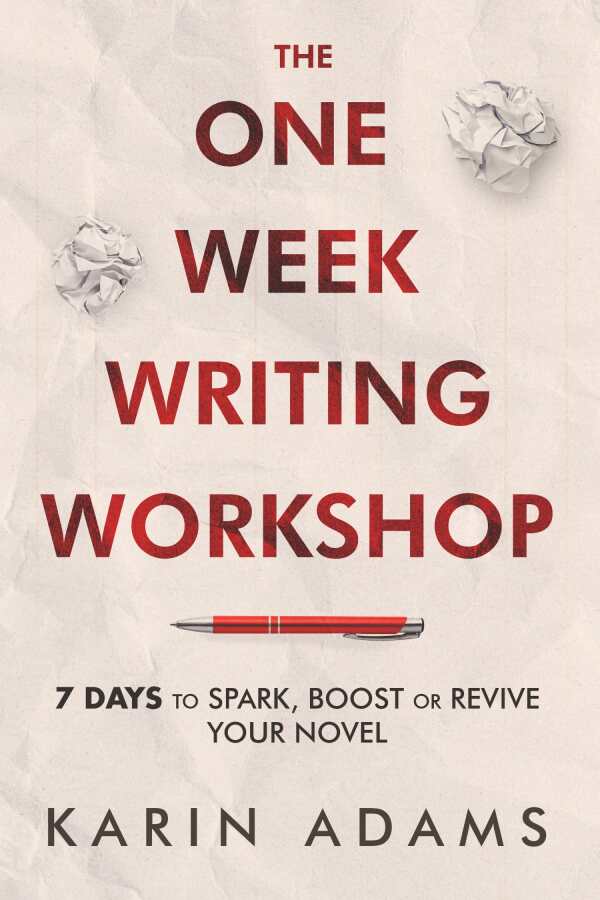The One Week Writing Workshop
7 Days to Spark, Boost or Revive Your Novel
- 2024 INDIES Finalist
- Finalist, Education (Adult Nonfiction)
An encouraging writer’s workbook with a bevy of suggestions to get one’s creative juices flowing, The One Week Writing Workshop is a helpful, exercise-laden guide.
Karin Adams’s personalized storytellers’ guide The One Week Writing Workshop is about brainstorming, drafting, and revising works of fiction with speed.
Arguing that one can draft a short story or novel excerpt in seven days, this workshop-inspired text focuses on one stage of the writing process per day. These stages include idea generation, drafting, and revision. Each is made up of a core activity and a series of optional warm-up and cool-down exercises. Day four, which includes a multistep plotting activity to be followed in its entirety, is an outlier in that the book does recommend following its guidance from start to finish. Recommendations for expanding the one-week writing workshop conclude the book, with guidance on using these tools to write an entire novel. Common roadblocks, including writer’s block and disillusionment with one’s plot, are also addressed.
Herein, writing is treated as a process that can be approached in a “practical, activity-centered” manner. The book accounts for a variety of writing experiences and styles: “Some writers prefer to dive right into their first draft and see where the writing takes them,” the book notes, while “others like to plan their entire story in great detail before drafting a story’s first word.”
The chapters are concise, and their advice is actionable and innovative, as with the modification of the common advice “show, don’t tell” to a recommendation for a “‘more show, less tell’ approach.” Elsewhere, a mini-storyboard activity involves writing plot points on sticky notes and placing them at the beginning, middle, or end of the story to represent moments in the protagonist’s arc, recentering plot elements like rising action, the climax, and the resolution to better flesh out the main character’s story. The separation of the middle of the story into two distinct spaces—in the first, obstacles abound and tensions ramp up; in the second, the story slides toward the resolution—is also edifying. And to illustrate such exercises, a novel-in-progress is imagined and introduced, complementing each stage of the process.
However, the example story—about Mark, a teenage swimmer—is itself flat, working somewhat against the exercises’ own persuasiveness. As a representation of what the one-week writing workshop might achieve, it’s an ineffective throughline. Still, while not all of the activities will work for all writers, as with the suggestion to create a full scrapbook from the point of view of a character, the book is appealing in its acknowledgement and validation of differing styles, as where invites reflection on what is most effective for each writer:
You might find you have a different writing personality. There may be something off-putting to you about my approach. That’s okay! When it comes to getting through a draft, it’s about setting the kind of schedule or goal that you will show up for.
One Week Writing Workshop is an imagination-sparking fiction writer’s guide to beginning a new project or reinvigorating a work in progress.
Reviewed by
Hannah Pearson
Disclosure: This article is not an endorsement, but a review. The publisher of this book provided free copies of the book and paid a small fee to have their book reviewed by a professional reviewer. Foreword Reviews and Clarion Reviews make no guarantee that the publisher will receive a positive review. Foreword Magazine, Inc. is disclosing this in accordance with the Federal Trade Commission’s 16 CFR, Part 255.

